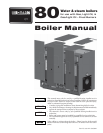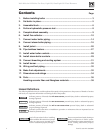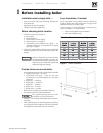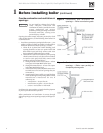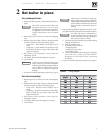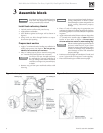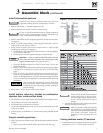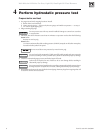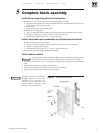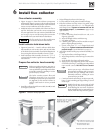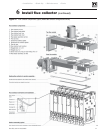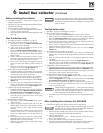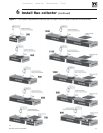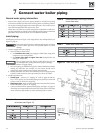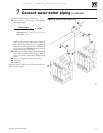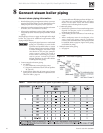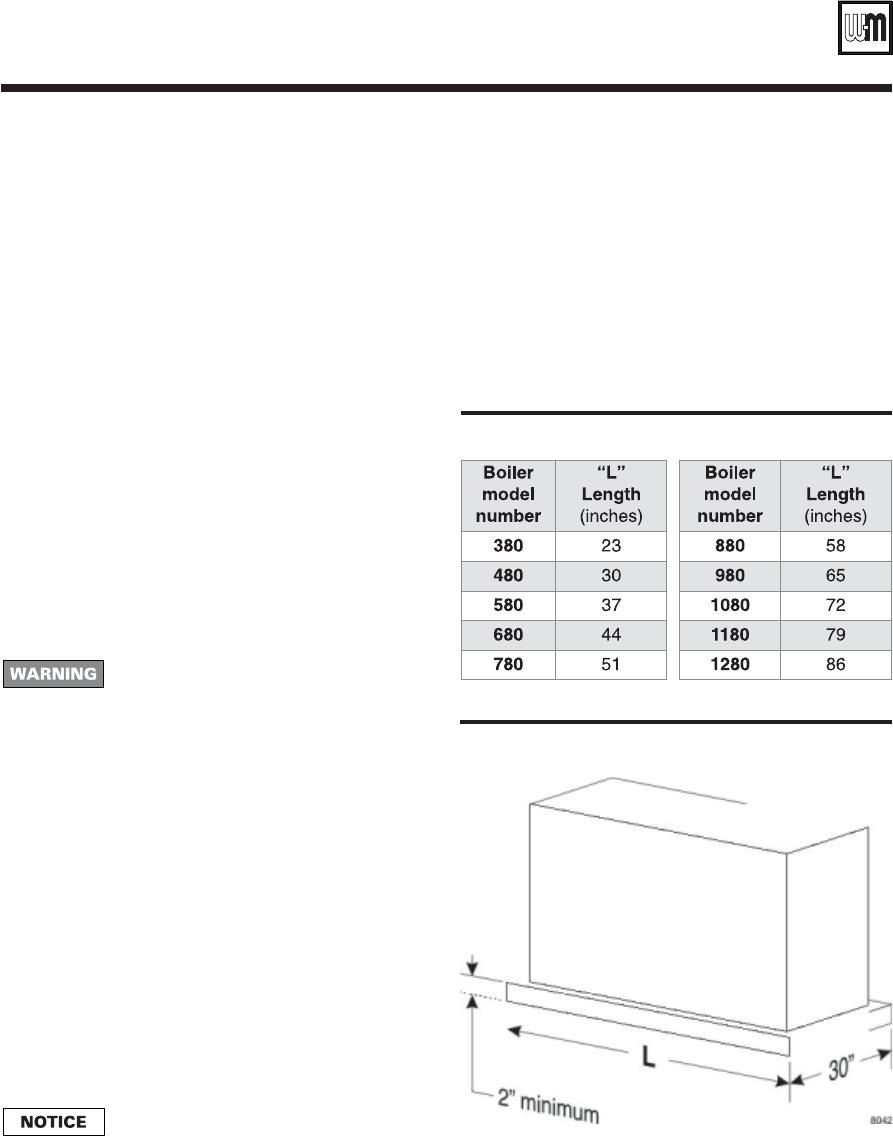
• Installation • Start-Up • Maintenance • Parts
3Part No. 550-141-935/0602
Installation must comply with —
• State, provincial and local plumbing, heating and
electrical codes.
• Regulations of servicing utilities.
• National codes where applicable.
Before selecting boiler location
1. Check for nearby connections to:
a. Fuel supply
b. Electrical power
c. System water or steam piping
d. Venting systems - see page 31
e. Combustion and ventilation air supply — see
"Provide combustion and ventilation air supply
openings" on page 4.
2. Check area around boiler. Remove any combustible
materials, gasoline and other flammable vapors and
liquids.
Failure to keep boiler area clear and free
of combustible materials, gasoline and
other flammable liquids and vapors can
result in severe personal injury, death and
substantial property damage.
1
Before installing boiler
Provide clearance around boiler
• Provide minimum clearances to combustible materials:
1. Singlewall vent pipe – 18 inches.
2. Doublewall vent pipe – refer to vent pipe
manufacturer's recommendations for vent pipe
clearances.
3. Boiler top — 24 inches.
4. Boiler front — 48 inches.
5. Boiler flue — 9 inches.
6. Boiler rear — 9 inches.
7. Boiler sides — 6 inches.
• Boiler may be installed on combustible flooring.
• See pages 34 and 35 for boiler dimensions.
Flue pipe/breeching clearances take
precedence over jacket clearances.
• Left side — for cleaning and tankless heater removal –
34 inches.
• Allow sufficient space on remaining sides for cleaning,
servicing and burner installation. See burner literature
for length and recommended service clearances.
Figure 1 Boiler foundation
Table 1 Boiler foundation (see Figure 3)
Lay a foundation, if needed:
Floor construction and condition must be suitable for
weight of boiler when filled with water. See page 34 for
approximate boiler operating weight.
A level concrete or brick foundation (constructed per
Table 1 and Figure 1) is required when:
1. A floor could possibly become flooded.
2. Non-level conditions exist.



